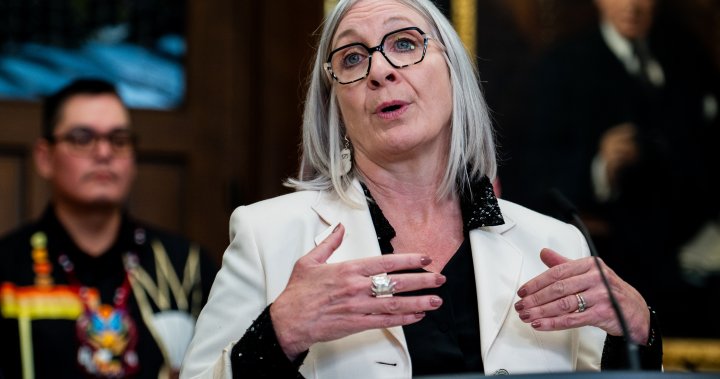Canada’s Indigenous Services minister, Patty Hajdu, recently faced questioning from Conservative MPs regarding non-Indigenous companies winning contracts intended for Indigenous businesses. The Indigenous Business Directory, aimed at connecting Indigenous businesses with federal contracts, came under scrutiny following a Global News investigation. The investigation highlighted loopholes in the Procurement Strategy for Indigenous Business (PSIB), which was designed to allocate five percent of government contracts to First Nations, Métis, and Inuit companies. Federal documents dating back to 1999 warned of the potential for exploitation and undermining of the program by “fronts” and “shell companies.”
Conservative MP Garnett Genuis characterized the abuse as “cultural appropriation leading to financial misappropriation,” calling for accountability from the government. However, Hajdu pushed back, questioning the sincerity of the Conservative interest in the issue and suggesting that they might view the initiative as “too woke.” She acknowledged that the PSIB program is currently under review, particularly regarding the challenge of determining if a company is genuinely Indigenous-owned. The federal government is working with Indigenous groups to address issues around defining Indigeneity, although specific details were not disclosed.
The PSIB, established in 1996 by the Chrétien Liberals, aimed to connect Indigenous businesses with federal contracting opportunities. Under the current Liberal government, departments are required to allocate at least five percent of procurement spending to companies owned and operated by Indigenous individuals or joint ventures involving Indigenous companies. This equates to around $1.6 billion annually. Global News reached out to 10 of the federal government’s top listed Indigenous contractors for more information on their connections to First Nations, Inuit, or Métis communities. Four declined to provide details or offered vague responses, raising questions about their legitimacy.
The investigation also uncovered instances where contractors received significant federal funding without clear indications of compliance with PSIB rules. Additionally, an official from Indigenous Services Canada suggested to an Indigenous tribal council that they could upload any document, even a “picture of a bunny,” to qualify as a contractor. The federal government later clarified that such documentation was not acceptable and apologized to the tribal council. Hajdu noted that companies with Indigenous partners might undergo changes over time, and those that were once Indigenous-owned but have since altered their management structure can still apply for federal contracts.
The issue of non-Indigenous companies exploiting programs meant for Indigenous businesses raises concerns about the integrity of the PSIB and the allocation of government contracts. While Hajdu emphasized the importance of Indigenous economic development, questions remain about the effectiveness and oversight of the program. The ongoing review of the PSIB and efforts to address challenges in determining Indigenous ownership signal a recognition of the need for greater accountability and transparency in federal contracting processes. As discussions continue on how to prevent abuse and ensure that contracts reach their intended recipients, the broader issue of Indigenous representation and economic empowerment within government procurement remains a focal point for policymakers and stakeholders alike.


